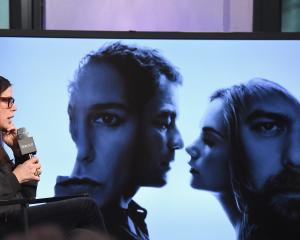It is a story as old as rock 'n' roll itself.
An androgynous teenager with a penchant for heavy make-up somehow meets Malcolm McLaren, gets thrown on stage with Bow Wow Wow, performs twice, before the other band members gang up on him and have him kicked out.
He forms his own group with his boyfriend, a drummer, and the new band goes on to gain international attention and score number one hits in the United Kingdom and the United States, before things start to go wrong.
The relationship sours, the hits dry up, our boy turns to freebasing cocaine then using heroin, he gets arrested and sentenced to pick up rubbish in the streets of New York.
Later, he gets convicted for assault and false imprisonment, and does hard time in Her Majesty's Prison Pentonville.
How many rock stars would put their hand up when asked and say, "Yeah, man, that was my story"?
Oh, the trials and travails of the rock 'n' roll lifestyle. How many decent young people have been used up and spat out by the industry, as they labour to bring young persons' rock music to the needy masses?
On this occasion, the story is that of Boy George, the face of the 1980s.
Not just the face, actually; the face, the hair, the make-up, the jewellery, and the many various accessories of the time.
George Alan O'Dowd may not be the most widely respected of artistes, nor a rock star one would immediately consider when delving into the cultural heart of the genre looking for the deep and meaningful.
But he did create the scene for one of the more poignant moments in the "decline of the star" field, when he turned up in New York picking up rubbish; an overweight balding man with a broom, a face mask for dust and a high visibility vest.
Prime Rocks, next Tuesday at 9.30pm on Prime, attempts to answer the question of why one who flew briefly so-sort-of high came down with such an awful thud.
Malcolm McLaren, still clearly alive when the programme was made, unsurprisingly takes the credit for giving Boy George his start. The show goes to Malcolm's associate Steve Strange and producer Steve Levine for answers, and, again unsurprisingly, we find heroin has a lot to answer for.
Boy George sold more than 45 million records, toured the world, became one of the most photographed celebrities of his time, and reached the giddying heights of being asked to appear on The A Team.
But he came from a gritty South London neighbourhood, from a family where domestic violence was not unknown, and where, confusingly, pictures of both the Pope and Muhammad Ali graced the walls.
It's an interesting story, actually.





